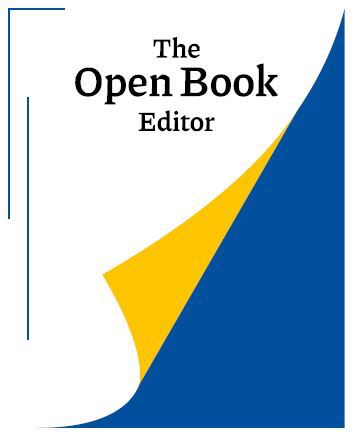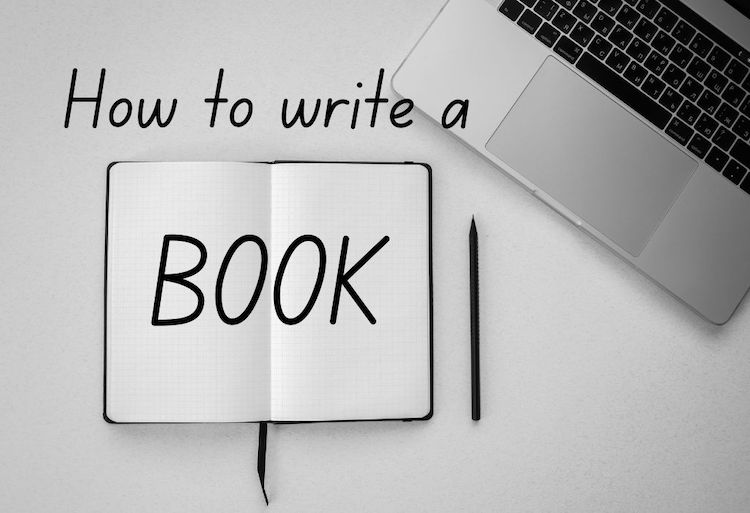There’s a certain romanticism associated with the writer’s life, which may be why around 60% of people aspire to become authors. But writing a book is a lot harder than most people think. Only a small percentage will start, and just 3% will actually finish. Why? Well, it’s all in the method!
Whether you’ve dreamed of penning a novel for some time or it’s a recent writing resolution, it’s important to set yourself up for success so you can start and finish writing your book. Our step-by-step guide shows you how to start writing your book, ways to maneuver through that tricky middle, and what to do once you finish.

Before you start writing your book
Prepare your writing space
A dedicated writing space will help you to stay focused and motivated. If possible, try to find a place where you can ‘close the door’ (either physically or mentally) to potential interruptions. And be strict about keeping it distraction-free. Leave your phone in another room so you aren’t tempted by calls, texts, or social media. And let friends and family members know that your writing space is sacred—this way they can avoid disturbing you while you’re writing.
Decide on a writing schedule
Consistency is key when you start writing your book, so create a daily writing schedule and do your best to stick with it. If you can, try to write at the same time every day, too; this will help teach your brain when it’s time to get creative.
Hone in on your book idea
Before you start writing your book, make sure you have a solid idea and that it’s a concept you love. Feeling passionate about your idea will not only help you start writing your book, but it will keep you motivated over the long process of finishing it.
Be careful about being too niche, while also capturing readers’ attention with your own fresh twist on the genre you’re writing. If you want other people to read your book someday, you need to think of your readers before you start writing. Try to find that balance between passion and a marketable book idea. And if you’re really not sure whether your idea will work, an author coach can offer an expert opinion and help you to develop your book’s concept too.
Outline your story
One of the most important steps to take before you start writing your book is to outline it. Even if you aren’t a big planner, having a basic outline of your book will help prevent writer’s block and ensure things stay cohesive for the most part, especially if this is your first time writing a full-length novel.
Creating an outline doesn’t have to be a labour-heavy project. Stick to the bare bones and don’t worry too much about fleshing out the details. Simply write down the major beats of your story so that you know the main plot points from start to finish. You can also create basic character and world-building outlines to refer back to later.

While writing your book
Break your book down into manageable pieces
Writing a novel is a lot like training for a marathon. You wouldn’t run the full 26.2 miles on day one of training, right? Well, the same goes for writing. When you start writing your book, don’t expect to be able to write thousands of words and for several hours every day. Instead, create manageable goals.
For example, commit to 15 minutes of writing per day for the first few weeks. Then, start to build that time up slowly. Similarly, you could set a goal to write 300 words every day, then start to increase that number as your writing stamina grows.
Don’t edit as you go
It can be tempting to try to ‘fix’ your book as you write it. However, editing your book as you go is rarely a good idea. Not only can it slow your momentum, but you risk falling into an endless loop where you edit the same sections over and over and never progress. So, once you start writing your book, aim to push through to The End. There’ll be time for self-editing your book later!

Accept procrastination is part of the process (and schedule it in)
Even professional authors have ‘off’ days when they struggle to write. So, it’s a given that you will, too! Instead of fighting these, schedule them in. Avoid creating too tight a writing schedule and, instead, leave some leeway in the calendar for the days where you’re struggling.
And even if you do go off schedule with your writing, don’t sweat it; you’re in this for the long haul. What’s important is you move on from the ‘off’ days and keep going.
Manage your expectations
There’s always a huge rush when you start writing a book. But, as a writer, it’s important to manage your expectations. The reality is that, sadly, the odds of a writer getting their work traditionally published is 1-2%. The likelihood of getting an agent or a publishing deal are less still for a writer’s first book, then, which is often written as the author has only just begun to hone their craft.
Like with anything, writing requires time and practise. Expect to spend hours, multiple drafts, and multiple books working on developing your ability. Learn from the process—you’ll get better and better the more you write! And don’t get discouraged if your first book isn’t the one; 8% of authors write at least one book before producing the manuscript that becomes their published debut.
Finish your first draft
Don’t just start writing your book; commit to finishing it! After the first adrenaline rush of beginning a new project fades, it’s not uncommon to find your momentum waning. Writer’s block, self-doubt, and, yes, a lack of motivation are a normal part of the writing process. When this happens, refer back to your outline, remember what motivated you to start in the beginning, or find ways to spark your creativity. Whatever happens, make sure you keep going until The End. You’ll thank yourself for it when you’re done!

After you finish writing your book
Set your manuscript aside
Don’t start editing your book right after you finish your first draft. At this point, you’re still too close to your work. You need time and space away from it so you can come back to it with a clearer view of what needs to change. Instead, focus on developing your next idea while your manuscript ‘rests’ for a few months, challenge yourself to writing short stories or in a new genre, or simply take some time away from writing altogether
Be prepared to edit (and edit some more)
There’s so much more to the writer’s life than, well, writing. Editing is one of the most crucial parts of the writing process. Before you can even consider querying or publishing your novel, you’ll need to do multiple rounds of edits.
NEVER query or self-publish an unedited book. After you’ve done a few rounds of self-editing, you’ll want to pass it on to some more objective readers. Join a writing group, find beta readers, or hire a professional book editor. No matter how good a self-editor you are, you’re still too close to your work. It can be hard to recognise mistakes or what edits you might need to strengthen your book. There’s a reason all those New York Times best sellers use editors, as well.
Decide what you want to do with your book next
Once you’ve finished editing your book, you may feel ready to send it out into the world! If this is the case, you need to decide which publication route is the best one for you: self–publishing, traditional publishing, or hybrid publishing. Depending on which you choose, you’ll want to make a plan. This might be creating a query schedule, prepping your pitch package, or marketing your book ahead of a self-publishing deadline.
It’s also possible that you’ll finish your book and think you’re not ready to query or self-publish just yet. Maybe you don’t have confidence in your writing style or the story, or the market doesn’t seem right at the moment. That’s fine and totally normal! Shelve it for now and come back to it later. Work on something else, revisit it with new skills, and make it even better.
Even if you decide never to try to publish it, know the hours you spent on it weren’t a waste. You’ve gained experience and learned a lot about the craft. We guarantee you’ll notice how much you’ve learned and improved the next time you start to write.

What if I still can’t start?
Writing a book can seem intimidating. This can often lead to procrastination, overplanning, or spending hours world-building when you should be writing. What’s the best way to start writing your book? To just start. Remember, you can always go back and fix things later, but you can’t edit a blank page.
And once you do finish? This is where a professional book editor can come in handy. No matter what your book needs—whether it’s developmental, copy-editing, or proofreading (or all three)—a great editor can help you navigate the tricky editing process. And whenever you’re feeling overwhelmed by the journey, just think of how proud you’ll be to be amongst the elite 3% of people who start AND finish their books!


